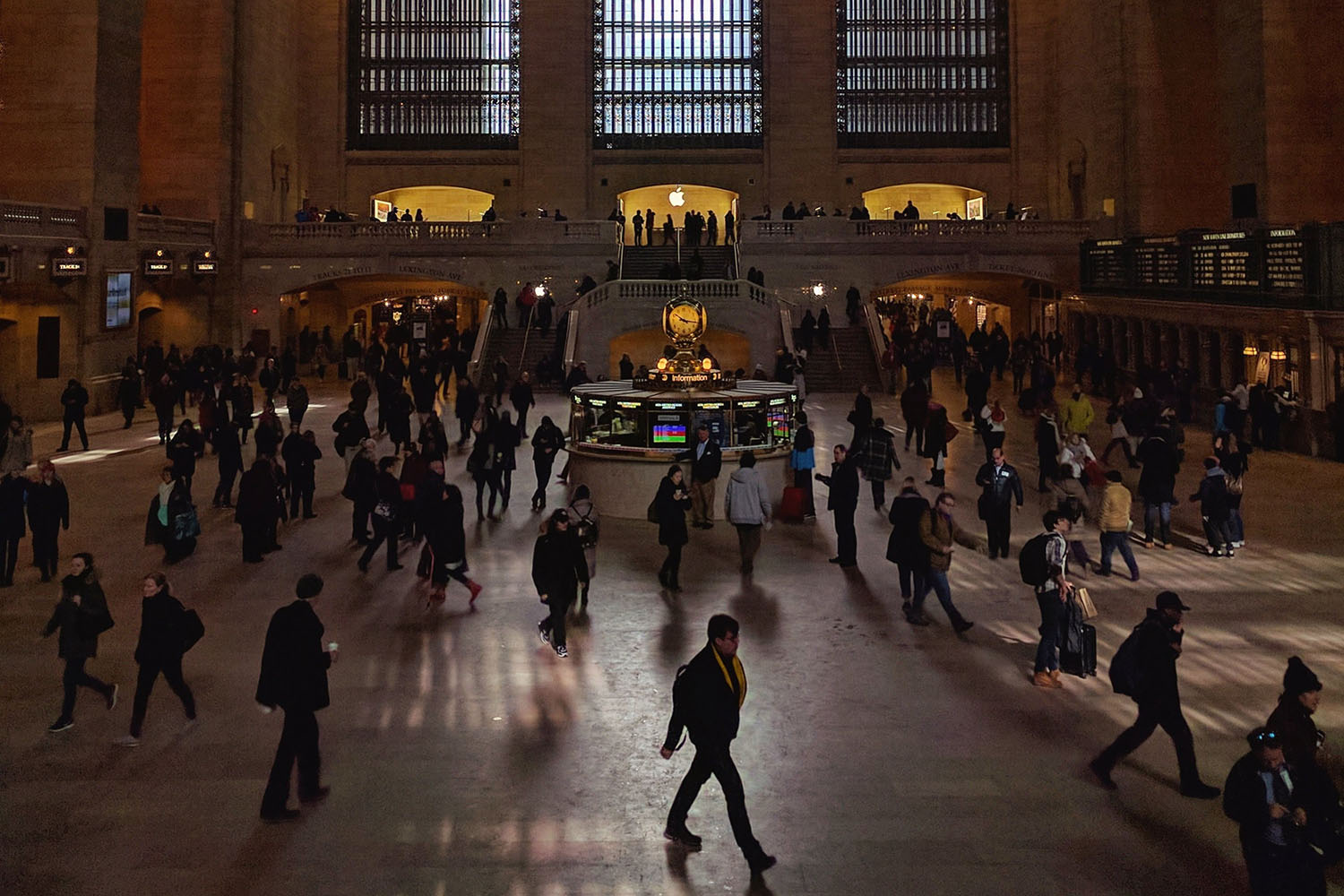
The history of city dwelling and how materialism fooled us all
The city has always been a paradox—a beacon of hope and a crucible of human ambition. For millennia, we have flocked to these dense, vibrant centers, seeking opportunity, connection, and a life grander than the one we left behind. From the earliest settlements of Mesopotamia to the sprawling metropolises of today, the story of civilization is inextricably linked to the history of city dwelling. Yet, somewhere along this journey from dusty trade routes to glittering skylines, a profound shift occurred. The promise of a better life, once rooted in community, security, and shared culture, was subtly replaced by a new, more seductive ideology: materialism. This is the story of how the urban dream was reshaped, and how the relentless pursuit of ‘more’ fooled us into believing that what we own defines who we are. It’s a narrative that explores how our homes, our health, and our very happiness became entangled in a cycle of consumption that now defines modern urban existence.
From Agrarian Roots to Urban Hubs: The Primal Pull of the City
The origins of city dwelling were not born from a desire for luxury, but from the fundamental human need for safety and cooperation. Early urban centers were practical solutions to the challenges of survival, offering protection from threats and fostering the collaboration necessary for progress. As these settlements grew, so too did their purpose, evolving from simple forts into complex societies where culture, commerce, and identity could flourish.
Early Cities: Centers of Safety and Shared Resources
The first cities, rising from the fertile crescent thousands of years ago, were revolutionary. They were places where agriculture could be managed, resources could be pooled, and specialized labor could emerge. Life was centered around the collective. Your identity was tied to your family, your craft, and your contribution to the city-state. While hierarchies existed, the overarching goal was communal stability. The focus was on building a society, not just accumulating personal possessions. This foundation of Community Living was the bedrock upon which all future urbanization was built. The primary concern was not Interior Design, but defensible walls and shared granaries.
The Classical City: The Birthplace of Civic Identity
In ancient Greece and Rome, the city evolved into a hub of philosophy, art, and political thought. The agora and the forum were vibrant public spaces where citizens debated the future and defined their collective values. Identity was deeply intertwined with citizenship—a concept of belonging and civic duty. While wealth and status were certainly present, they were often demonstrated through public service, patronage of the arts, or military prowess. Materialism existed, but it was frequently in service to the city itself. This era laid the groundwork for our understanding of a sophisticated urban life, where personal ambition could coexist with civic responsibility. However, the seeds of consumerism were planted, as trade routes brought exotic goods that became markers of a worldly and prosperous individual, a precursor to the globalized consumer culture we know today.

The Industrial Engine: How Factories and Finance Reshaped Urban Life
The Industrial Revolution marked the most dramatic turning point in the history of city dwelling. The invention of the steam engine and the rise of the factory system acted as an irresistible magnet, pulling millions from pastoral lives into the chaotic, burgeoning cities. This mass migration didn’t just change the landscape; it fundamentally rewired our social structures, our sense of self, and our relationship with the material world.
The Great Migration and the Anonymity of the Crowd
As people poured into cities like London, Manchester, and New York, they left behind the tight-knit communities that had defined human existence for centuries. In the village, everyone knew your name, your family, your story. In the city, you were anonymous, a faceless individual in a sea of strangers. This newfound anonymity created a profound psychological void. Without the traditional markers of identity, a new language was needed to communicate status, success, and worth. This is where materialism began its insidious creep into the urban consciousness. Possessions became the vocabulary of this new social language. The quality of your coat, the location of your flat, the furniture you owned—these became the primary signals of your place in the world. This pressure had a significant impact on Family Life and personal well-being, creating a constant struggle to maintain appearances.
The Birth of Mass Production and the Creation of Desire
The factory system was a double-edged sword. It offered employment and produced goods at an unprecedented scale, making previously unattainable items accessible to the working class. However, mass production requires mass consumption. To keep the economic engine churning, a culture of desire had to be manufactured. The burgeoning advertising industry stepped in, masterfully linking products not to their utility, but to abstract concepts like happiness, freedom, romance, and social mobility. Suddenly, you weren’t just buying soap; you were buying beauty and confidence. You weren’t just buying a car; you were buying adventure and status. This shift was a cornerstone of modern capitalism and a key factor in how materialism “fooled us.” It transformed the city from a place of production into a grand theater of consumption, a trend that continues to dominate Lifestyle News and shape our economic realities, demanding careful Personal Finance and Budget Tips to navigate.
The Allure of the Skyline: Materialism as the New Social Language
In the 20th and 21st centuries, the city became the undisputed epicenter of consumer culture. The principles forged in the Industrial Revolution were refined and amplified, creating an environment where materialism is not just an option, but the default operating system. From the pressure to achieve the suburban dream to the psychological toll of constant comparison, modern urban life is deeply entangled with the pursuit of things.
Keeping Up with the Joneses: The Urban Dream and Its Discontents
The post-war economic boom gave rise to the suburban ideal: a single-family home with a manicured lawn, a two-car garage, and all the latest appliances. This image, endlessly reinforced by media and advertising, became the ultimate symbol of success. This created a powerful social pressure to conform through consumption. Your home became a showcase, a direct reflection of your success. This fueled entire industries centered around Home Improvement, Interior Design, and Home Decor. The quest for the perfect home often comes at a high cost, demanding long work hours that erode the very concept of Work-Life Balance and contribute to chronic stress. Many find themselves trapped in a cycle of earning and spending, with little time left for the meaningful connections and Hobbies that truly enrich life. This pressure extends beyond the home, influencing everything from Sustainable Fashion choices to the technology we carry in our pockets.
The Psychological Cost: When Wants Morph into Needs
The fundamental trick of materialism is its ability to turn wants into perceived needs. This is powered by a psychological phenomenon known as the “hedonic treadmill.” The initial joy of a new purchase quickly fades, leaving us wanting the next, slightly better thing to recapture that fleeting high. This endless cycle is a recipe for dissatisfaction and anxiety. It impacts our Mental Health, leading to feelings of inadequacy, envy, and financial stress. In response, many urban dwellers are turning inward, exploring practices like Mindfulness, Meditation, and yoga, as evidenced by the growing popularity of Yoga News and wellness retreats. They are seeking tools for Stress Management and Self-Improvement to cope with the pressures of a system that constantly tells them they are not enough. The environmental cost is also staggering, as this culture of disposability directly conflicts with the principles of Sustainable Living and Zero Waste.
A Path Forward: Cultivating Well-being in a Material World
Despite the pervasive influence of consumerism, a powerful counter-current is emerging in cities across the globe. A growing number of people are questioning the materialist script and actively seeking a more authentic, sustainable, and fulfilling way of life. This movement is not about rejecting the city, but about reclaiming it—transforming it from a marketplace of goods into a community of shared experiences and values.
The Rise of a New Urban Consciousness
This new consciousness manifests in various forms. The rise of Minimalism and the popularity of Decluttering methods are direct responses to the excesses of consumer culture, promoting the idea that happiness comes from having less, not more. There is a renewed interest in localism and Community Living, with people creating urban gardens, supporting local businesses, and forming neighborhood groups to foster connection. This shift emphasizes experiences over possessions. Instead of buying new gadgets, people are investing in Travel Tips to explore new places, taking up DIY Projects, or focusing on their Health & Wellness through better Meal Planning and cooking with Healthy Recipes. This holistic approach extends to all areas of life, from practicing Natural Cleaning at home to focusing on Sleep Health as a pillar of well-being.
Practical Steps for a More Meaningful Urban Life
Breaking free from the materialist trap is a conscious choice that requires intentional action. Here are some practical steps:
- Master Your Finances: True freedom begins with financial stability. Embrace Financial Planning and create a budget that prioritizes saving and experiences over impulsive spending. Understanding your finances is a crucial step in Personal Development.
- Cultivate Community: Actively seek out connections. Join a local club, volunteer for a cause you care about (a great way to achieve Social Impact), or simply get to know your neighbors. Strong Relationships are a far greater source of happiness than any purchase.
- Engage with Your City: Look beyond the shopping malls. Explore your city’s parks, museums, and libraries. Attend Cultural Events and support local artists. Your city is a rich tapestry of experiences waiting to be discovered.
- Embrace Self-Sufficiency: Learn a new skill. Start an herb garden on your windowsill with some basic Gardening Tips for Urban Gardening. Learn to cook or repair things yourself. These activities provide a sense of accomplishment and reduce reliance on consumerism.
- Prioritize Well-being: Make your physical and mental health a non-negotiable priority. This includes everything from regular exercise and a nutritious diet to setting aside time for quiet reflection and improving your Stress Management techniques.
By taking these steps, we can begin to rewrite our relationship with our cities and with the concept of a “good life.” It’s about shifting our focus from accumulation to contribution, from consumption to creation, and from isolation to connection.
Conclusion
The history of city dwelling is a story of human ingenuity and our unyielding search for a better life. For centuries, cities offered the promise of community, opportunity, and cultural enrichment. The industrial and consumer revolutions, however, introduced a powerful narrative that equated progress with material acquisition. This ideology fooled us into a relentless cycle of wanting and buying, often at the expense of our well-being, our relationships, and our planet. But the story is not over. We are now at a critical juncture, with the awareness and the tools to challenge this narrative. By embracing minimalism, prioritizing experiences, fostering community, and focusing on holistic health, we can reclaim the original promise of the city. The future of urban dwelling lies not in building taller skyscrapers or bigger shopping centers, but in cultivating deeper connections and redefining success on our own, more meaningful terms.
You may also like

Why is Belgium Split in Two

The UN defend decision to change legislation in 2024

President returns from visit to Europe amidst law investigations
Archives
- February 2026
- January 2026
- December 2025
- November 2025
- October 2025
- September 2025
- August 2025
- January 2024
- October 2023
- September 2023
- August 2023
- July 2023
- June 2023
- May 2023
- April 2023
- March 2023
- February 2023
- January 2023
- December 2022
- November 2022
- October 2022
- September 2022
- August 2022
- June 2022
- May 2022
- April 2022
- March 2022
- January 2022
- December 2021
- November 2021
- October 2021
- August 2021
- November 2020
- July 2020
- May 2020
- April 2020
- March 2020
- August 2018
- July 2018
- June 2018
- April 2018
- March 2018
Categories
- Aftercare Procedures
- Age Groups
- AI/ML
- Alternative Medicine
- Ambient Computing
- Animal Health
- Animal Husbandry
- Animals
- Anti-Aging
- Architectural Design
- Art And Technology
- Auditory Science
- Augmented Reality
- Automation
- Babies
- Baby
- Beauty & Skincare
- Beauty Industry
- Biohacking
- Biomechanics
- Book Reviews
- Breastfeeding
- Budgeting
- Budgeting Strategies
- Business
- Cardiovascular Health
- Career Advice
- Career Development
- Career Growth
- Cats
- Chess
- Chronobeauty
- Circular Economy
- Civic Technology
- Cleaning Tips
- Cloud Computing
- Cognitive Health
- Cognitive Performance
- Cognitive Science
- Community
- Community Building
- Community Engagement
- Community Living
- Computer Vision
- Consumer Guides
- Consumer Trends
- Container Gardening
- Content Analysis
- Content Non-Technical
- Content Strategy
- Cosmetic Chemistry
- Cultural Events
- Cycling
- Data Analysis
- Data Engineering
- Data Science
- Database
- Design Psychology
- Design Trends
- Developer Productivity
- Diet
- Diet
- Digital Identity
- Digital Media
- Digital Wellbeing
- DIY
- DIY Projects
- Dogs
- Engineering Culture
- Entertainment News
- Environmental Impact
- Environmental Science
- Equity Compensation
- Ethical AI
- Exercise
- Exercise Science
- Exercise Technique
- Exotic Pets
- Fall Gardening
- Family
- Family Health
- Family Life
- Fashion Business
- Fashion Industry
- Fashion News
- Fashion Tech
- Financial Analysis
- Financial Optimization
- Financial Planning
- Flooring Maintenance
- Food
- Food Psychology
- Food Safety
- Food Tech
- Functional Fitness
- Functional Training
- Future Of Work
- Garden Care
- Garden Maintenance
- Gardening Tips
- Geospatial Data
- Gig Economy
- Greece
- Greek
- Greek Food
- Green Technology
- Gymnastics
- Hardware Engineering
- Health
- Health And Wellness
- Health Informatics
- Health Science
- Health Tech
- Health Technology
- Healthcare Management
- Healthy Eating
- Healthy Recipes
- Holistic Health
- Holistic Wellness
- Home & Living
- Home Decor
- Home Financing
- Home Health
- Home Improvement
- Home Maintenance
- Home Organization
- Home Styling
- Horticulture
- Household Chemistry
- Identity Management
- Industrial Design
- Industry Analysis
- Infant Nutrition
- Infrastructure Management
- Ingredient Deep Dive
- Integrative Health
- Integrative Medicine
- Interior Design
- Internet of Things
- Internet of Things (IoT)
- Invalid Request
- Investment Strategies
- Investment Strategy
- IoT
- Kids
- Leadership Development
- Learning Strategies
- Lifestyle
- Lifestyle Brands
- Lifestyle News
- Lifestyle Optimization
- Literary Criticism
- Literature
- Logistics Management
- Material Science
- Materials Science
- Meal Planning
- Media Analysis
- Meditation
- Mental Health
- Mental Performance
- Mental Wellness
- Miami
- Miami Food
- Mind And Body
- Minimalism
- Mobile Development
- Neuroscience
- No Applicable Categories
- Nutrition
- Nutrition News
- Open Source
- Operating Systems
- Operational Resilience
- Opinion
- Organization Tips
- Outdoor Living
- Over 40
- Over 50
- Over 60
- Parenting
- Parenting
- Parenting Strategies
- Performance
- Performance Optimization
- Personal Development
- Personal Finance
- Personal Growth
- Personal Productivity
- Pet Care
- Pet Safety
- Philosophy
- Politics
- Product Formulation
- Productivity
- Productivity Engineering
- Protein
- Psychology
- Psychology of Space
- Reading Culture
- Real Estate Investment
- Recipes
- Regulatory Compliance
- Remote Work
- Renovation Planning
- Resource Management
- Respiratory Health
- Responsible Pet Ownership
- Retail Strategy
- Robotics
- Science
- Seafood
- Seasonal Gardening
- Security
- Sedentary Health
- Self-Care
- Skincare Science
- Skincare Trends
- Sleep
- Sleep Health
- Smart Home
- Smoothies
- Social Impact
- Soft Skills
- Soil Health
- Spatial Computing
- Spatial Design
- Stress Management
- Supplements
- Sustainability
- Sustainability Science
- Sustainable Engineering
- Sustainable Fashion
- Systems Engineering
- Tax Optimization
- Tax Strategy
- Tech Investment
- Travel
- Travel News
- Travel Safety
- Travel Tips
- Trend Analysis
- Uncategorized
- Urban Gardening
- Urban Planning
- User Experience
- Veggie
- Vietnam
- Virtual Events
- Volunteering
- Wealth Management
- Wearable Technology
- Wellness
- Wellness Technology
- Winter Gardening
- Work-Life Balance
- Workplace Culture
- Workspace Setup
- World
- Writing
- Writing Skills
- Year In Review
- Yoga
- Yoga News
- Zero Waste

Leave a Reply